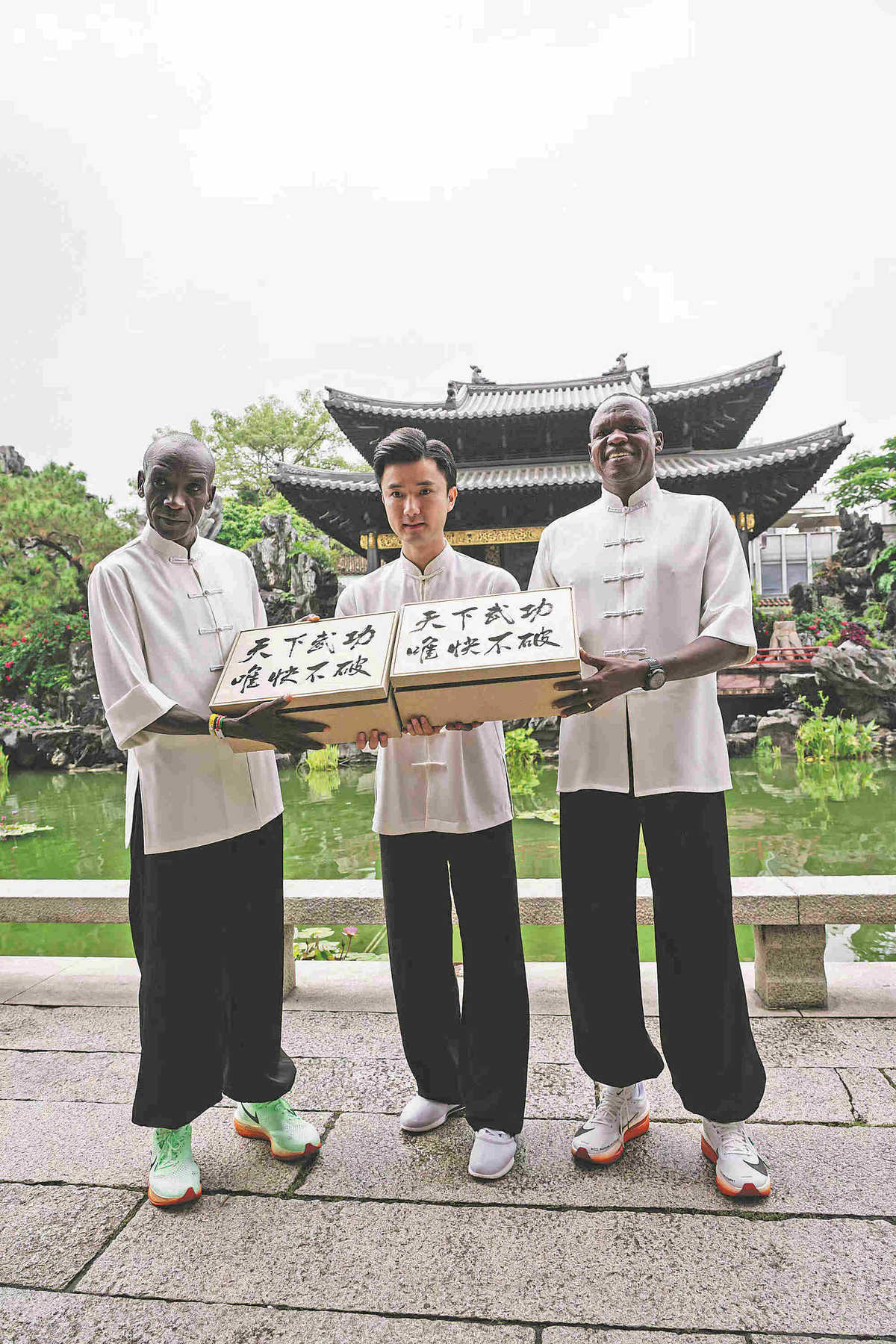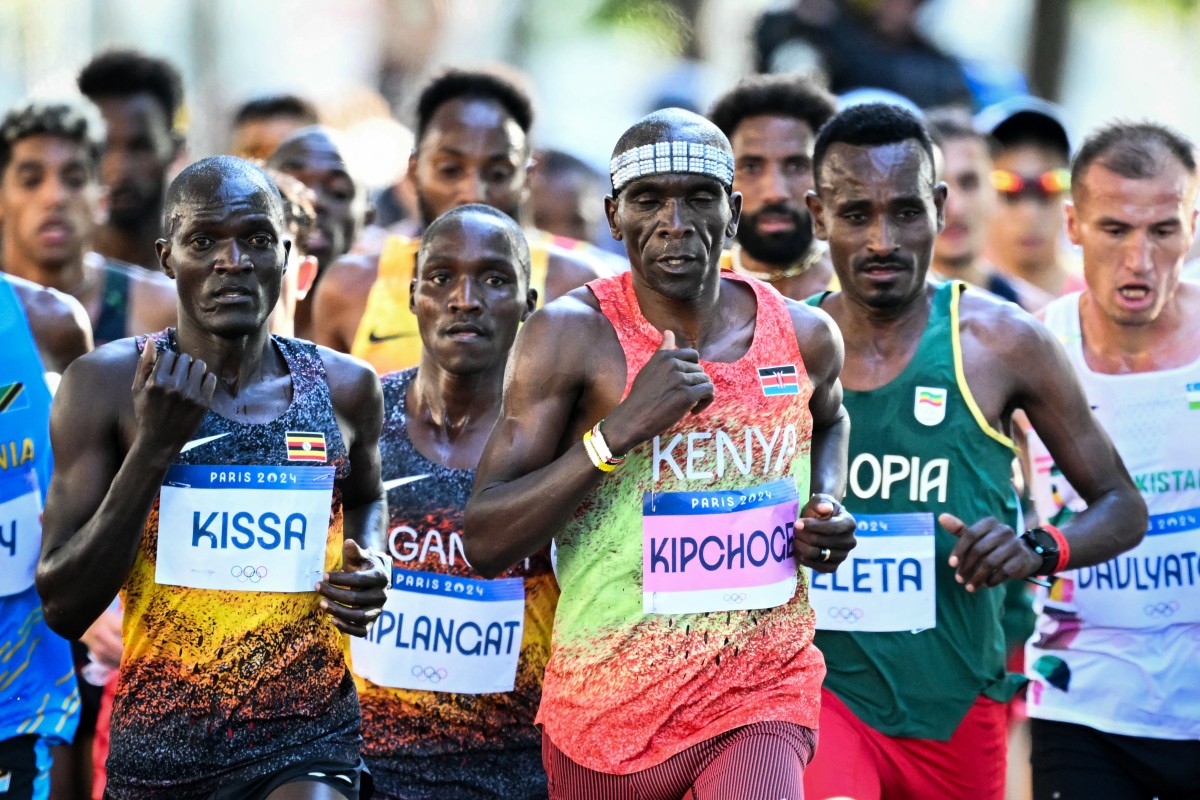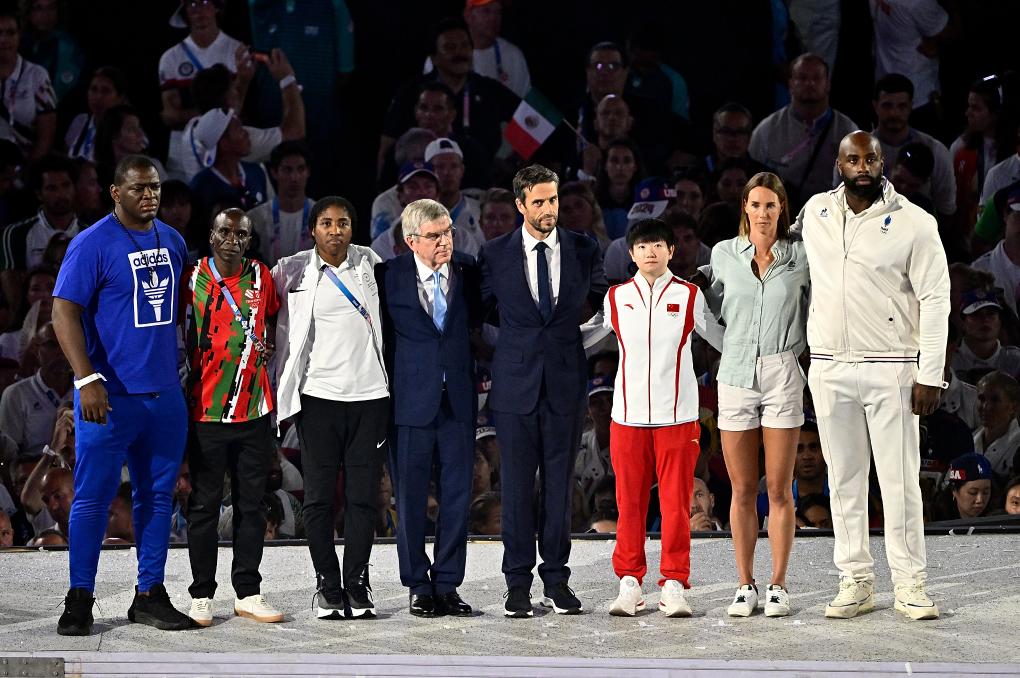Tracking Success delivers the inside story for global sports fans, exploring what makes elite performers tick, and providing insight into their biggest and most intriguing moments on and off the field of play.
After celebrating his 40th birthday, legendary Kenyan marathon runner Eliud Kipchoge recently embarked on his fifth visit to China, where he embraced local culture, indulged in eating dim sum, and experienced Chinese kung fu.
His journey also took him to major cities such as Beijing, Guangzhou and Shenzhen, where he connected with local runners, shared his experiences, and offered insights into his training philosophy. "The plan is to meet as many Chinese as possible before I conclude my tour," Kipchoge explained.
Wherever Kipchoge goes, runners naturally flock to join him. This trip was no exception, as fans gathered to train alongside him, eager to glean wisdom from one of the greatest athletes of all time.
During his time in China, Kipchoge explained the driving forces behind his training regime, and spoke about the discipline that has powered his marathon success. His goal is clear: to inspire a new generation of runners in China. With his remarkable journey as a backdrop, Kipchoge hopes to encourage more people to take up running, and believes China is poised to become a powerhouse in the marathon world.
"I trust that, if I don't get to meet the Chinese runners, then they will follow me on social media to know that we have been in China, to know what I've been doing here and my philosophies. And I trust what I'm doing will actually help them," he said.

During this visit, Kipchoge also sat down for a conversation with Zhang Chaoyang, founder and CEO of Chinese internet company Sohu. Zhang observed that Kipchoge's extraordinary achievements are a reflection of his serious, disciplined approach to life.
"Enduring high-intensity training every day for months — not just physically, but mentally — presents a unique challenge," Zhang remarked. "It's a matter of strength and belief; no amount of talent alone could achieve this."
Kipchoge shared that his ambition extends beyond simply winning races. His true goal, he explained, is to push the limits of human endurance and inspire others in the process.
Zhang noted that Kipchoge's pursuit has transcended mere passion or interest, becoming a fundamental part of his values and beliefs. It is this profound inner conviction, Zhang suggested, that propels Kipchoge to run faster and continually break his own boundaries.
Road to superstardom
Kipchoge was born in Kapsisiywa, Kenya, and raised on a farm. As a child, he would often ride his bicycle to sell milk, and run to and from school each day.
In 2002, he began focusing on running, initially specializing in the 5,000 meters, a discipline he pursued for 11 years. In 2013, Kipchoge transitioned to marathon running, embarking on another 11-year journey that would redefine the sport.

With a remarkable "10 consecutive wins" record, he cemented his place as one of the greatest marathoners of all time.
He has frequently remarked: "Marathons are like life, because both are full of challenges." From his debut marathon in 2013 to breaking world records twice, winning Olympic gold twice, and famously breaking the two-hour marathon barrier, Kipchoge has not only achieved extraordinary personal milestones, but also inspired a global community of runners.
"I enjoy running marathons. I enjoy training for marathons. I love to run long distances — to feel that exhaustion, to feel the effort," he said.
Looking back on his career, Kipchoge attributes his journey to a deep love for running and a desire to showcase his talent on the world stage.
"My original dream was just to compete and represent Kenya. And make life good," he said. "Then life changes, and my thinking changes, and I got a new idea of pushing the limits — that's what I've been doing since."
ALSO READ: Kipchoge aims to live another Olympic dream in Tokyo
At this year's Paris Olympics, Kipchoge withdrew from the marathon at around the 31-kilometer mark, missing the chance to secure a historic third consecutive Olympic gold.
Struggling with physical discomfort, he slowed to a pace that saw him alternating between running and walking. As runners passed, many offered words of encouragement to the legendary Kenyan.

After stepping off the course, Kipchoge chose to pass on the support he had received. He stopped on the track to wait for the last-place finisher, Mongolian runner Ser-Od Bat-Ochir, offering words of encouragement as he completed the race in two hours, 42 minutes and 33 seconds.
Around 300 of Kipchoge's dedicated fans walked alongside him for the final two kilometers, staying with him until he exited the race. As a gesture of gratitude, Kipchoge gave away his race gear — his uniform, socks, shoes and race number — to the supporters who had cheered him on.
After the race, Kipchoge said it was the worst marathon he had ever participated in, noting that he had never before retired from a race. He drew a comparisons with boxing: "Five months of training, then knocked out in two seconds."
Love of the sport
Following his Olympic setback, Kipchoge opted to take a break and rest, a much-needed pause after a remarkable career marked by dominance and resilience. "There are things you can't prevent, what has happened has happened. One way (to deal with things) is to convince my mind to move on and try to fulfill what has been on my bucket list," he said.
With a running career spanning over two decades, Kipchoge attributes his enduring drive to a profound love for the sport. "The inspiration that I am still into, the general humanity in this world, is what motivates me to wake up early every morning and go for a run," he said.
Among his many milestones, Kipchoge views his sub-two-hour marathon as his most significant achievement. "I aim to shift the mindset of the running community, to show it that we are not limited — neither in our minds, nor in our pain, nor physically," he reflects.

For Kipchoge, the greatest reward in marathon running is not the competition or the records, but the fulfillment that comes from completing the race. "It's not just about running to win or breaking records. It's about the satisfaction you feel after finishing a marathon — knowing that you can run anything, that you can accomplish anything in this world."
For years, Kipchoge has adhered to a strict daily routine. His day begins at 5 am, when he rises for a morning run. Afterward, he returns home for a tea break, followed by some light exercise before lunch. In the afternoon, he heads out for another run, then spends the rest of the day focusing on recovery and relaxation before preparing for bed.
"Repetition is making your mind adapt to what you have been doing every day. Repetition means making a muscle adapt to training every day," he said.
To avoid injuries, Kipchoge keeps his approach simple: consistency in training. He stresses the importance of not missing a session whenever possible.
READ MORE: Kipchoge, Bekele dream of next challenge after London Marathon
"Even if you miss running for 20 kilometers, just run for five kilometers to keep the momentum in your muscles and your mind. Make sure that your practice, your mind, and your muscles endure for running every day — this is the easiest way to keep away the injuries," he said.
"The more you run, the fitter you will become. The more you run, the more your mind will work, more vividly and faster than that person who is not running."
Fact Box
Name: Eliud Kipchoge
Birthdate: November 5, 1984
Nationality: Kenyan
Sport: Long-distance running, specializing in marathons
Olympic medals
2004 Athens Games: Bronze, 5,000m
2008 Beijing Games: Silver, 5,000m
2016 Rio Games: Gold, marathon
2020 Tokyo Games: Gold, marathon
Major marathon wins
Chicago: 2014
Berlin: 2015, 2017, 2018, 2022, and 2023
London: 2015, 2016, 2018, and 2019
World records: Held the marathon world record multiple times
Awards: IAAF Male Athlete of the Year 2018, 2019
Motto: "No human is limited"


